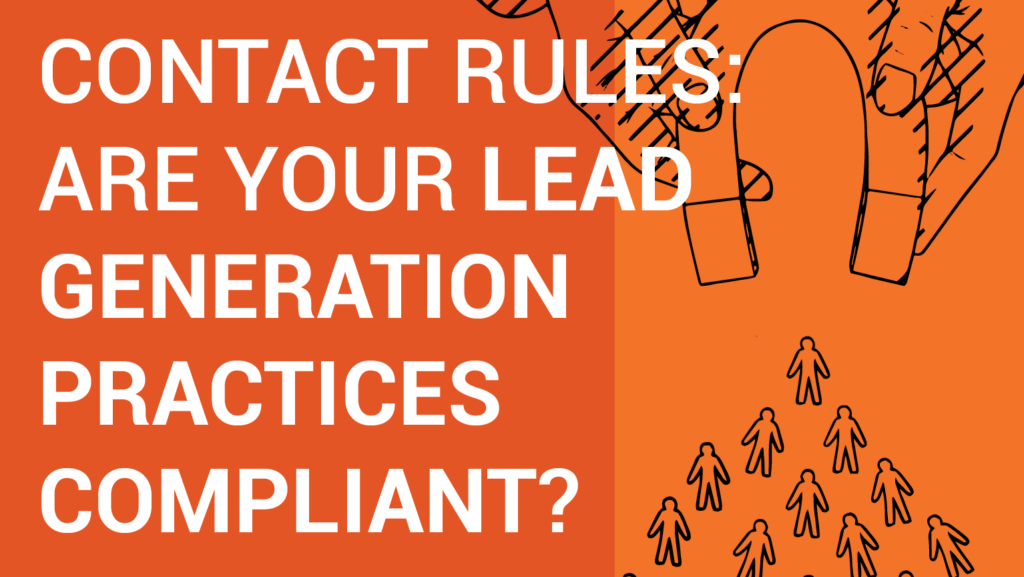Lead generation in insurance and other industries has evolved with expanded internet capabilities, and will no doubt be evolving. Follow the contact rules to keep your lead generation practices compliant.
Unsolicited Contact Rules
A good rule to follow is to let the potential client initiate or request contact. If you attempt to send communications without the permission of the client, your actions will fall under unsolicited contact.
There are only two forms of unsolicited direct contact that you can make with potential clients. You can send print advertisements and direct mail, or you can send emails that follow generic marketing material guidelines and have an opt-out function.
You can get your agency in trouble for unsolicited contact through a number of avenues. You are prohibited from text messaging and messaging on social media. Door-to-door solicitation is not allowed, and you can’t leave flyers or leaflets at people’s homes or on their property. Approaching people in public spaces is not allowed. Importantly, although you may be tempted to, you can’t call attendees of a sales event unless they gave permission, and you can’t call a referral (they have to reach out first).
How Agents Can Contact
All of those restrictions didn’t leave you without options. You are allowed to call people who have given express permission to contact. You can also give your contact information out to current clients who want to refer someone they know.
You have a host of existing relationships with clients, who have given permission to contact. You can call your current clients to promote other Medicare plan types or discuss plan benefits, or call to inform clients about general plan information such as the soonest enrollment period.
Returning phone calls and messages is also allowed, and you can leave information at a residence if you had a no-show appointment.
Permission to Contact
Keep in mind that giving you permission to contact does not mean that the potential client will want to keep receiving your messages indefinitely. Over time, some clients may decide to disenroll or start the process of disenrolling: you are not allowed to make calls to market plans or products to these former or soon-to-be-former clients.
Think of this as a common courtesy system. Not many people enjoy receiving junk mail, and your services may not be the right fit for every potential client. Pour your energy into the clients you do have and they may return the favor with referrals.
Insurance marketing has plenty of rules and regulations. If you have questions about contacting potential clients or a specific method of communication, reach out to our team for guidance.


